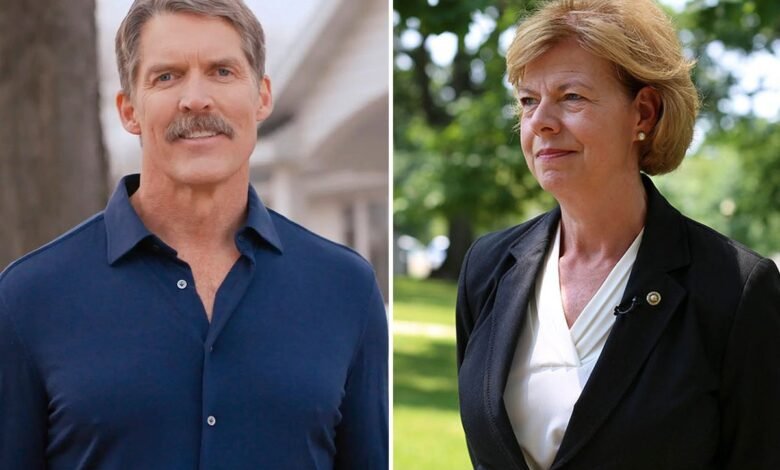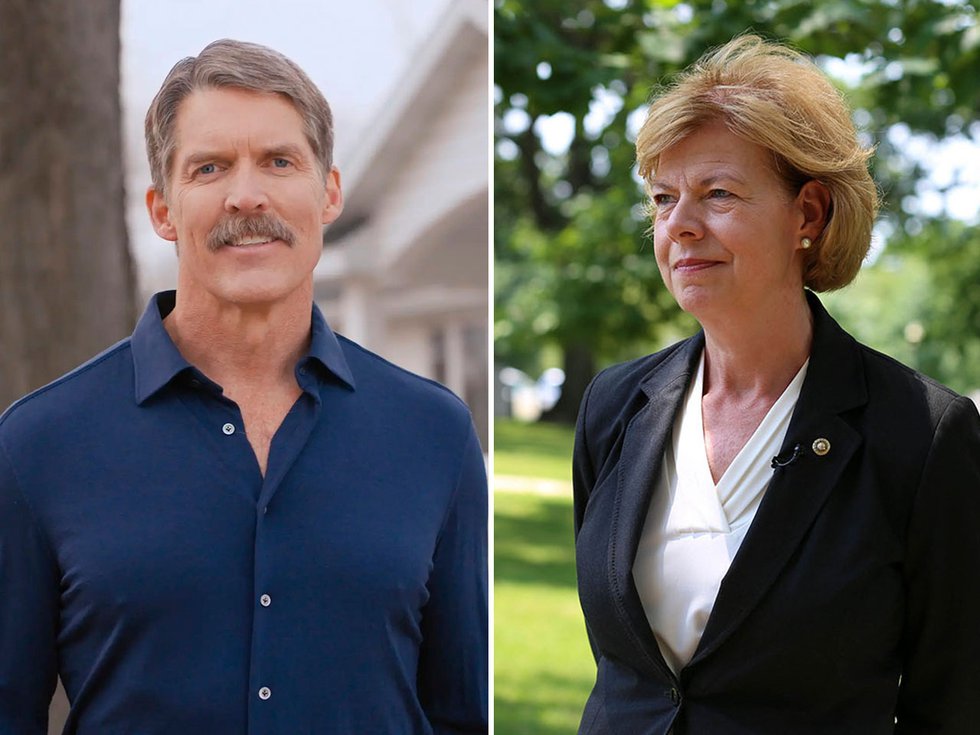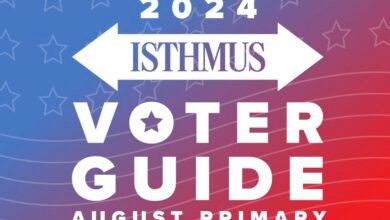Billionaires and super PACs fuel record spending in tight Wisconsin Senate race – Isthmus


With polls tightening and outside groups pouring millions into Wisconsin’s Senate race, the showdown between Democratic Sen. Tammy Baldwin and Republican challenger Eric Hovde has become one of the most expensive — and closely watched — races in the nation.
According to pre-election campaign finance filings released on Thursday, Baldwin has raised $52.6 million and spent $51.3 million so far in the 2024 campaign, while Hovde has raised $29.3 million and spent $25.8 million, making it the 7th most expensive Senate race this election cycle. It’s also the most ever spent by candidates in a Wisconsin Senate race. In 2022, Sen. Ron Johnson spent $35.26 million and his opponent Mandela Barnes spent $41.07 million.
While individual contributions to candidate committees are capped at $3,300 per election, both candidates have multiple super PACs (political action committees) spending money to support and oppose them. In the most recent filings, outside spending totaled $101.9 million in the race with $6.7 million being spent to support Baldwin and $43.5 million being spent to oppose Hovde. Outside groups spent $9.4 million to support Hovde, and $41.8 million to oppose Baldwin.
Eric Petry, counsel at Brennan Center for Justice’s Elections and Government Program, says outside political spending has the potential to deteriorate trust between elected officials and their constituencies.
“It can give the appearance of buying influence, buying access,” Petry says. “Which, I think reasonably, leads to voters to question whether their voices are being heard and question whether their votes matter.”
The Fix Washington super PAC, which is a single candidate PAC supporting Hovde, has raised $15.8 million, according to FEC filings. Three people have made contributions of more than $1 million to the super PAC. Steven Hovde, Hovde’s brother, donated $2 million. Kenneth Griffin, billionaire CEO of Florida-based hedge fund Citadel, donated $2.5 million and Elizabeth Uihlein, billionaire co-founder and CEO of Uline, donated $1 million. In 2022, Uihlein, along with her husband Richard, and Griffin were the second and third-largest donors to federal elections behind George Soros.
Barry Burden, professor of political science and director of the Elections Research Center at UW-Madison, says there has been more influence from rich donors in recent election cycles.
“Recent Supreme Court decisions have made it possible for extremely wealthy individuals to fund outside groups to an unlimited degree,” Burden says. “This allows a few people to have outsized influence on campaigns.”
Baldwin is also receiving support from super PACs, with the WinSenate super PAC spending $26.3 million to oppose Hovde. The group has spent $256 million during the 2024 election cycle, all in opposition to Republican candidates. According to OpenSecrets, WinSenate reported no individual contributions over $200.
Arik Wolk, spokesperson for the Democratic Party of Wisconsin, says outside money supporting Baldwin has become necessary given the spending against her.
“It is a general goal that there should be less big money in politics,” Wolk says. “At the same time, we can’t tie one hand behind our back.”
The Hovde campaign did not respond to multiple requests for comment.
While some donors donate to super PACs publicly utilizing their legal names, other donations to super PACs come from “dark money” groups, which are politically active 501c4 nonprofits that do not legally have to disclose donors.
In the Wisconsin Senate race, national super PACs that are spending money in races across the country have received funding from dark money groups. One Nation, a nonprofit contributing dark money, donated $25.5 million to the Senate Leadership Fund super PAC that has opposed Baldwin. America Votes, another similar organization, contributed $3.5 million to super PACs that supported Baldwin and opposed Hovde.
Fundraising increases as race tightens
Cook Political Report, which provides nonpartisan election analysis, has rated the race as a “toss up.” Polling averages gathered by FiveThirtyEight show Baldwin leading by 4%, down from 6.5% in August. Burden says the race’s competitiveness has naturally led to increased spending.
“Polls suggest that the race has tightened,” Burden says. “That has encouraged outside groups to dump even more money in advertising for and against the candidates.”
Wolk credited the narrowing of the race to the $16.7 million spent by the Senate Leadership Fund, a super PAC affiliated with Senate Minority Leader Mitch McConnell. “I think that has made the race closer,” he says.
In 2022, 88% of the congressional races were won by the candidate who spent more money. One of the notable exceptions? Wisconsin’s Sen. Ron Johnson.


